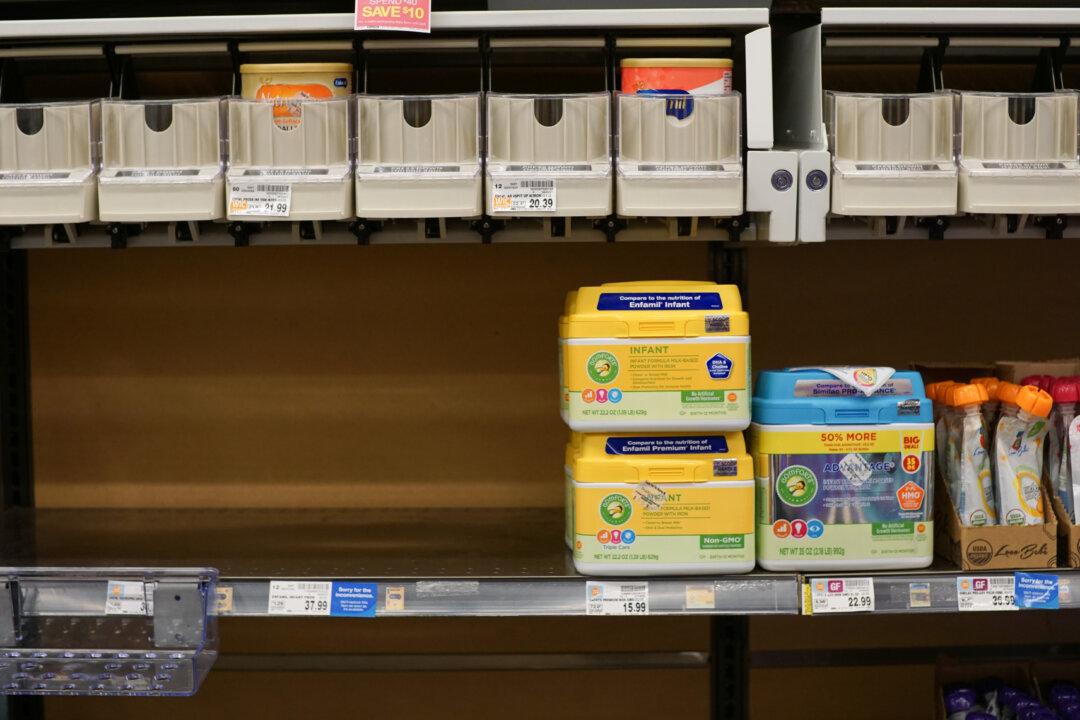In view of current shortages, French multinational food product corporation Danone has started significantly increasing its imports of infant formula from Europe to the United States, according to an analysis by Reuters.
Ocean Audit, a U.S. customs data and shipping consultancy, examined ocean cargo data for the media company and found that Danone shipped baby formula from the UK and Netherlands through its Nutricia North America division following the Abbott Laboratories recall that led to the nationwide shortages.





